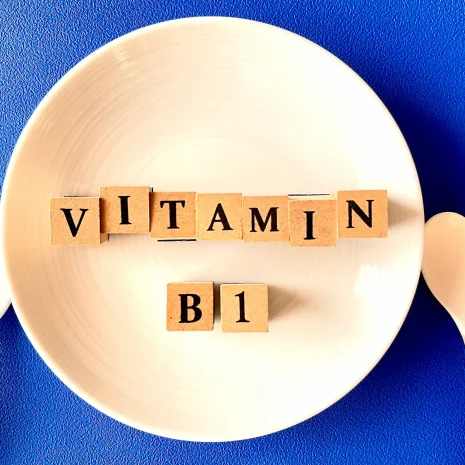Which vitamins are good for gum health?
Vitamins and minerals are key to lots of processes within the body, helping to keep you fit and healthy. One area you might not associate them with is your oral health – but it’s true that these dietary nutrients contribute to good gum health as well as your overall well-being. If your diet is poor or you have a condition that affects nutrient absorption, multivitamin supplementation may be needed.
What vitamins and minerals are good for gum health?
1. Vitamin A
- Function: Essential for maintaining mucosal integrity and ensuring the health of soft tissues, which include gums.
- Sources: Found in foods such as carrots, sweet potatoes and leafy greens.
2. B Vitamins
- Vitamin B12 (Cobalamin):
- Function: Important for red blood cell production and nerve health; a deficiency can lead to oral health issues.
- Sources: Found in animal products like meat, eggs and dairy.
- Folate (B9):
- Function: Supports the regeneration of gum tissue and may help in the prevention of gum diseases.
- Sources: Available in leafy greens, legumes and fortified cereals.
- Vitamin B3 (Niacin):
- Function: Essential for cellular health and can help manage inflammation in gum tissue.
- Sources: Found in meats, fish, whole grains and legumes.
3. Vitamin C
- Function: Vital for collagen synthesis, vitamin C helps in the maintenance and repair of gum tissue. It also strengthens the immune system, which can aid in fighting gum disease.
- Sources: Citrus fruits, strawberries, bell peppers and broccoli.
4. Vitamin D
- Function: Vitamin D is important for calcium absorption, which is essential for strong teeth and bones, thereby supporting overall gum health.
- Sources: Fatty fish, fortified milk, cheese and exposure to sunlight.
5. Vitamin K
- Function: Plays a crucial role in blood clotting and may help maintain healthy gums by supporting proper blood circulation in the gum tissues.
- Sources: Leafy vegetables such as spinach and kale, as well as fermented foods.
Additional Nutritional Factors: The Role of Minerals
- Iron Deficiency: Low iron levels can lead to symptoms such as pale gums and increased susceptibility to infections. Individuals with iron deficiency may experience gum pain and a higher risk of oral infections.
- Magnesium: Some studies indicate a link between magnesium levels and periodontal health, suggesting that adequate magnesium intake may help reduce inflammation in the gums.
Can a vitamin deficiency cause gum problems?
Vitamin deficiencies can lead to various symptoms that affect gum health, including:
- Inflammation and Bleeding Gums: Suggestive of deficiencies in vitamins C and K.
- Pain and Sensitivity: Increased sensitivity may occur due to a lack of essential nutrients.
- Pale or Swollen Gums: Signs of deficiencies in vitamins B and C can manifest in the appearance and health of the gums.
If you experience these symptoms, it is essential to consult a healthcare professional for an accurate diagnosis and appropriate interventions.
Conclusion: Prioritising Nutritional Health for Healthy Gums
Maintaining healthy gums is vital for overall health, and this requires a balanced intake of essential vitamins and minerals. By ensuring adequate consumption of vitamins A, B, C, D, K, and minerals such as iron and magnesium, individuals can support their gum health and prevent deficiencies that may lead to complications.
While multivitamins can offer valuable support for overall health, it is essential to recognize that a balanced diet should remain the cornerstone of nutritional well-being. Multivitamins are intended to be a complementary measure and should not be considered a substitute for a diverse and nutritious food intake.
Note: It is strongly advised that individuals consult a healthcare professional prior to initiating any supplement, particularly if they have existing health conditions, are taking prescribed medications, or are pregnant.








